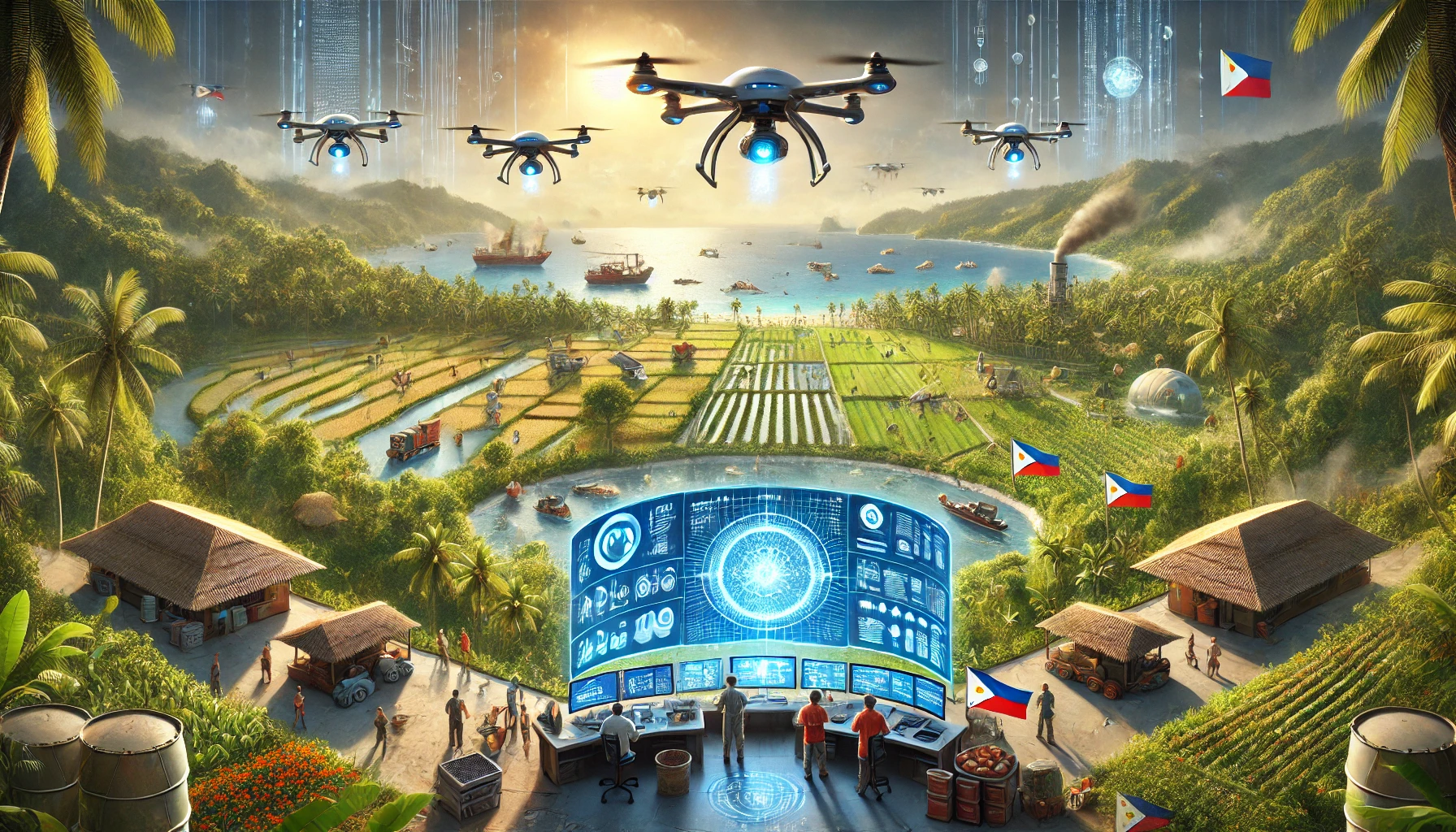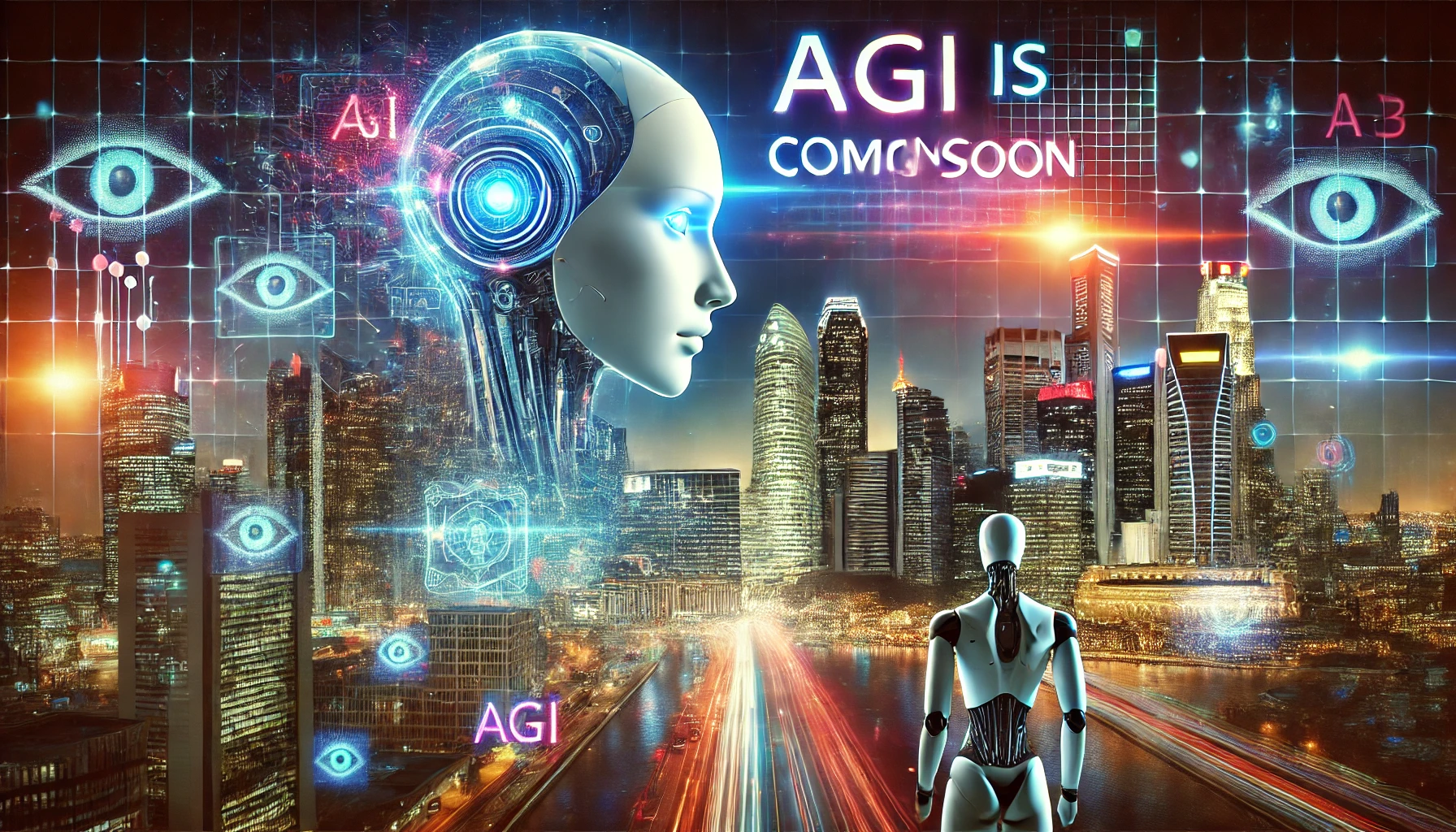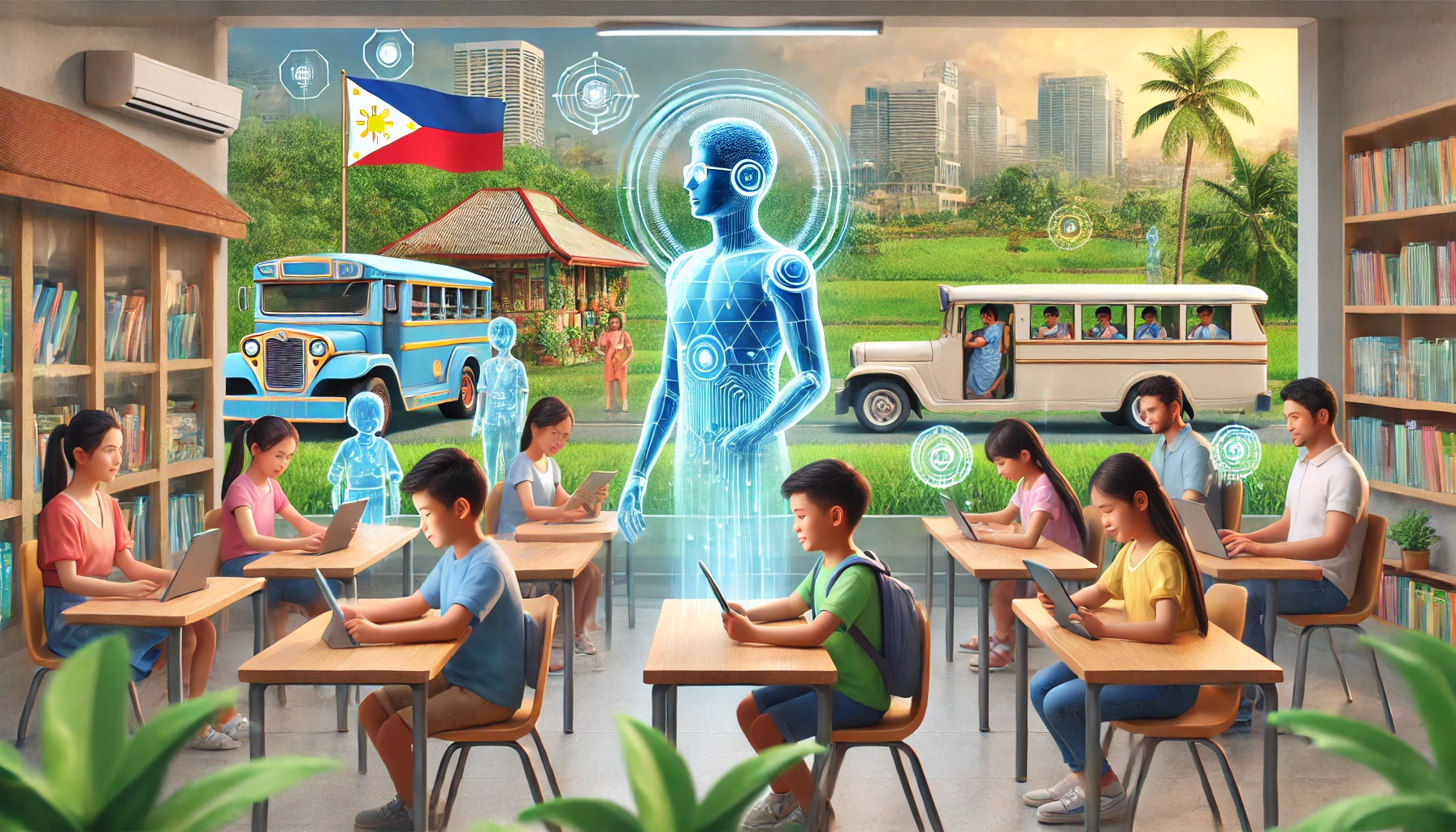The Philippines faces significant environmental challenges, including deforestation, illegal mining, marine pollution, and climate change impacts. While the country has robust environmental laws like the Clean Air Act, Clean Water Act, and Wildlife Resources Conservation and Protection Act, enforcement often remains inadequate due to limited resources, corruption, and fragmented governance. Advanced General Intelligence (AGI) offers transformative potential to address these issues by monitoring compliance, identifying violations, and ensuring effective enforcement of environmental regulations.
1. Real-Time Environmental Monitoring
AGI can process massive datasets from various sources to provide real-time insights into the environmental state. This can include:
- Satellite Imagery and Remote Sensing: AGI can analyze high-resolution satellite data to detect deforestation, illegal mining activities, and coastal erosion.
- IoT Sensors: Deployed in critical areas, these can monitor air and water quality, soil degradation, and noise pollution. AGI can interpret this data to identify deviations from legal standards.
- Drone Surveillance: Drones equipped with cameras and sensors can patrol protected areas, with AGI analyzing footage to detect illegal activities like logging, poaching, or fishing.
2. Detection and Prediction of Violations
Using predictive modeling, AGI can anticipate where and when environmental violations are likely to occur. For example:
- Illegal Logging: By analyzing historical deforestation patterns and economic data, AGI can identify hotspots for illegal logging.
- Marine Pollution: By tracking shipping routes and waste management practices, AGI can pinpoint areas prone to oil spills or waste dumping.
- Air Quality Violations: Continuous monitoring of industrial emissions and weather patterns can help identify and predict sources of air pollution.
3. Integration with Law Enforcement
AGI can support government agencies like the Department of Environment and Natural Resources (DENR) and the Philippine Coast Guard by:
- Automated Reporting: Generating detailed violation reports with evidence (e.g., images, videos, sensor data) for use in legal proceedings.
- Resource Allocation: Identifying areas where enforcement efforts should be prioritized, optimizing the use of limited personnel and resources.
- Corruption Mitigation: By automating evidence collection and reporting, AGI minimizes human involvement in critical monitoring stages, reducing opportunities for corruption.
4. Public Engagement and Transparency
AGI can enhance public participation and accountability by:
- Citizen Reporting Platforms: Allowing citizens to report violations via apps, with AGI verifying and categorizing reports.
- Education Campaigns: Providing localized recommendations and real-time updates on environmental conditions, encouraging community involvement.
- Transparent Data Sharing: Publishing environmental data and enforcement actions online to build trust and encourage compliance.
5. Legal and Policy Support
AGI can assist policymakers and legal authorities in strengthening environmental governance:
- Policy Analysis: Evaluating the effectiveness of existing laws and proposing improvements based on data-driven insights.
- Legal Support: Automating the drafting of legal documents and conducting case law research to support environmental litigation.
- Compliance Audits: Conducting automated audits of industries to ensure adherence to environmental standards.
Challenges and Considerations
While AGI holds immense potential, its implementation in environmental monitoring and enforcement in the Philippines faces several challenges:
- Cost and Infrastructure: Deploying AGI systems requires significant investment in technology and infrastructure.
- Ethical Concerns: Ensuring privacy and fairness in the use of surveillance and data collection tools.
- Resistance from Stakeholders: Some industries may resist stricter enforcement enabled by AGI.
- Capacity Building: Training local agencies and communities to effectively use AGI tools.
Conclusion
The integration of AGI into environmental monitoring and enforcement in the Philippines offers a powerful solution to the country’s pressing ecological challenges. By enabling real-time monitoring, predictive analysis, and efficient enforcement, AGI can ensure that environmental laws are not only upheld but also adapted to meet the dynamic challenges of the 21st century. However, successful implementation will require collaboration between the government, private sector, and civil society to overcome challenges and realize AGI’s full potential for a sustainable future.
[SEO optimized]


